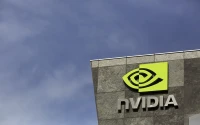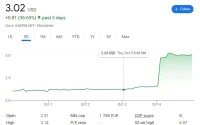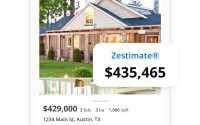Codie Sanchez's 17 Income Streams: Genius or Just Noise?
Codie Sanchez has built a brand around the idea of diversified income. Seventeen streams, to be exact. The claim is compelling: financial freedom through sheer volume. But the question, as always, is whether the numbers actually support the narrative. Or is it just a cleverly marketed illusion?
Sanchez highlights income from YouTube ad revenue, affiliate marketing, consulting, home service businesses, courses, venture capital fund management fees, SaaS, Airbnb, multi-family investments, stock and bond portfolio dividends, royalties from franchises, licensing content, book royalties, and venture/angel investments. It sounds impressive. It is impressive. But let's break it down. The YouTube revenue, for instance, is cited as $360,000 in 2024. That's a solid number, but it's also a top-line figure. What are the costs associated with content creation – equipment, editing, Sanchez's own time? The article doesn't say. (This lack of expense disclosure is a recurring theme.)
Then there's the "home service companies" income stream – roofing, window cleaning, etc. Sanchez isn't out there unclogging toilets herself; she owns a piece of Brezi Brands, which takes a cut of franchisee revenue. Which raises a key question: What percentage of her total income does this "unsexy" stream actually represent? Again, the numbers are absent.
The Illusion of Effortless Income
Affiliate marketing is touted as "almost effortless." Maybe. But successful affiliate marketing requires building trust, creating compelling content, and understanding SEO. It's not passive; it's a constant grind. The article mentions AI companies offering lucrative affiliate programs. But how sustainable are these payouts? AI is a hype-driven market; those generous commissions could vanish as quickly as they appeared.
Consulting, another stream, is presented as a way to monetize existing skills. True enough. But consulting gigs are often sporadic, and the income is rarely predictable. It's a feast-or-famine cycle, not a steady flow. Sanchez also highlights courses and communities as a "turning point" for scaling income. I see this as a turning point where a person is able to scale up their own revenue stream.

The Venture Capital Question Mark
Venture capital fund management fees are described as "lucrative." They can be. But they also require a proven track record, a strong network, and the ability to convince limited partners to hand over substantial sums of money. It's not a beginner's game. This is where I think Sanchez's experience becomes relevant. Her background in finance gives her a distinct advantage in this arena.
Airbnb and multi-family investments are presented as ways to generate passive income. But anyone who's dealt with tenants, leaky roofs, or fluctuating occupancy rates knows that "passive" is a myth. These are active investments that demand time, attention, and capital. The article suggests buying a duplex with an FHA loan and 3.5% down. While technically true, this ignores the realities of mortgage payments, property taxes, insurance, and maintenance costs.
Stock and bond portfolio dividends are indeed a source of passive income, but the yields are typically modest—2% to 4% annually is a common range. To generate a significant income stream from dividends, you need a substantial portfolio. Licensing content and book royalties are similar: the potential is there, but the actual income depends on the quality of the content, the effectiveness of the marketing, and the willingness of distributors to pay. Sanchez mentions using Omnisend to boost book sales. It's a smart tactic, but it also adds to the cost.
Speaking of books, Codie Sanchez's book Main Street Millionaire has helped spread her message of building wealth through "boring businesses." Her podcast, The BigDeal Podcast with Codie Sanchez, further amplifies her brand. These media ventures are income streams in themselves, but they also fuel her other ventures by building her personal brand. As she explains in Codie Sanchez: 17 Income Streams I Use — and You Can, Too — To Build Wealth, diversification is key to building long-term financial security.
The Diversification Delusion?
Seventeen income streams sounds impressive, but it's also potentially overwhelming. Spreading yourself too thin can lead to mediocrity across the board. The key, I suspect, isn't the number of streams, but the quality and scalability of each one. Are these truly independent streams, or are they all tributaries flowing from the same central source—Codie Sanchez's personal brand? And if that brand takes a hit, what happens to the seventeen streams?
So, What's the Real Story?
Codie Sanchez has built a successful business by selling a vision of diversified income. But the details matter. The lack of details, in fact, is telling. Without a clear breakdown of revenue, expenses, and time commitment for each stream, it's impossible to assess the true profitability and sustainability of her approach. It's a compelling narrative, but the numbers remain stubbornly opaque.










